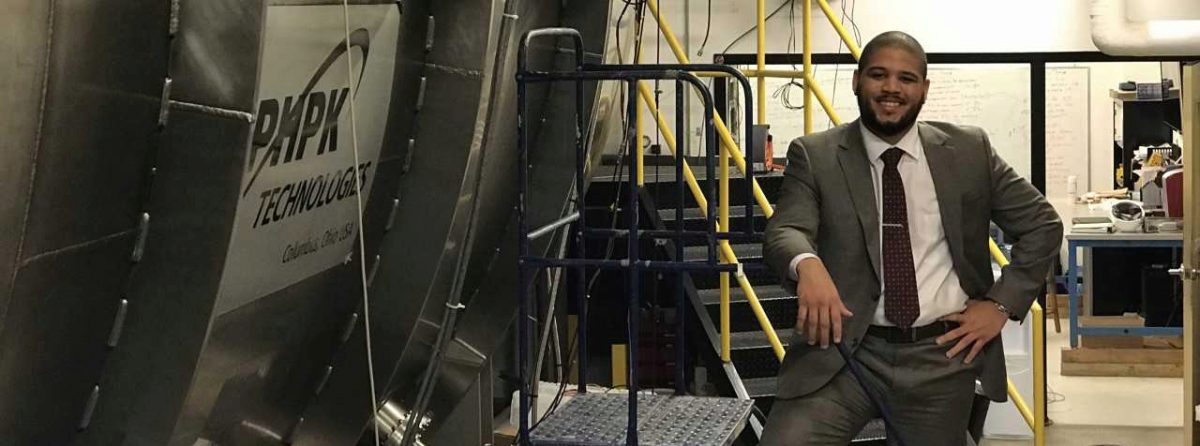 Cutting-edge Physics - and More. NextProf Pathfinder participant Jean Luis Suazo is excited about embarking on a career that will give him access to interesting physics problems - and the next generation of aerospace engineers.
Cutting-edge Physics - and More. NextProf Pathfinder participant Jean Luis Suazo is excited about embarking on a career that will give him access to interesting physics problems - and the next generation of aerospace engineers.
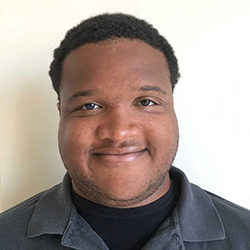 |
| Kreston Barron |
Aerospace Engineering grad students Kreston Barron, Jean Luis Suazo, and Christopher D. Roper are heading to Michigan this week to participate in the NextProf Pathfinder, a two-day workshop designed to boost their chances of launching a successful future in academia.
Established by the University of Michigan, the NextProf Pathfinder program offers promising first- and second-year grad students practical guidance and support to ensure their future goals are attainable. The workshop will include instruction on how to build a competitive resume/CV, how to navigate high-level coursework, how to select and interact with a research advisor, and the importance of developing the next generation of academics through outreach.
For Maryland native Suazo, 23, those objectives fit right into the game plan. Working with Prof. Mitchell Walker, he is focusing on the physics of electric propulsion, a technology which promises to play a growing role in deep space travel in the next 10 years. His doctoral research is likely to center on the laser diagnostics of Hall thruster plumes.
"By studying what comes out of those plumes, we can know what's going on in the thruster. And that's going to help us make it more efficient..."
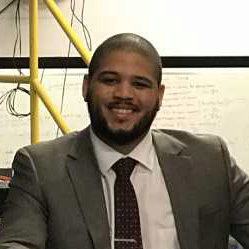 |
| Jean Luis Suazo |
But that's not the only goal he has for himself. Or for his time at Georgia Tech.
"I will chase down that career path - doing cutting-edge physics and publishing about interesting developments in the field - because of the degree I'm pursuing. And there's a benefit to that. But it also makes a difference that other students see someone in academia who looks like me, who looks like them...someone they can identify with... A lot of graduate students attribute 100 percent of their successes to their own work. I recognize that the successes I've had are partly due to my hard work, but also largely due to the right people being there at the right time. When the time comes, and wherever I end up, that's what I want to do."
A successful career in academia is just the beginning of Roper's story. Before matriculating at Georgia Tech's Aerospace Engineering School, he earned two undergraduate degrees (in physics and in mechanical engineering) and two minors (aerospace engineering and mathematics). Going forward, he wants to work on rocket design. He'd also like to one day use his engineering skills to create sustainable energy and clean water in developing nations around the world...and...
"One thing I haven't ruled out, and I actually ponder it a lot sometimes is, well, becoming an astronaut," says the Lawrenceville native.
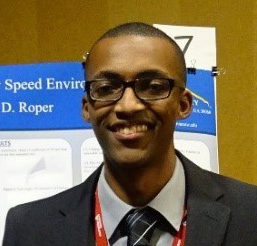 |
| Christopher D. Roper |
"But I also think that there's a need for more leaders in academia from different demographics - something the Pathfinder program is trying to promote - and I am proud to be a part of that effort, too."
When Roper leaves the NextProf workshop at the end of the week, he'll be flying to Pasadena, not Atlanta.
"I was offered a co-op by the Jet Propulsion Lab when I was finishing my undergraduate degree because I had published a paper that was presented at the National Society of Black Engineers," he said. "So, instead of starting my graduate program at Georgia Tech this fall, I was given permission to do a semester at JPL, where I'm working on the Mars 2020 mission."
After working several years in the aerospace industry, Barron returned to Tech last year to earn a graduate degree. His aspirations were rewarded this past spring by the Graduate Degrees Minority Engineers (GEM) program which selected him for a scholarship and internship package at the Oakridge National Lab that will support his entire graduate program.
Barron has been working with Prof. Daniel Schrage on ISRU [In Situ Resource Utilization] technology to harness energy from the atmosphere on Mars. Ultimately, they want to use energy so derived to generate power for aerial and ground vehicles that will operate on Mars. Barron says it was Schrage’s vision that convinced him that the ISRU project was the right direction for his graduate work.
“I can appreciate the importance of details – that’s important to engineering – but I’ve always been a big picture person. So when I came back to Tech [for graduate school] and Dr. Schrage said he wanted to put a UAV on Mars, I knew I had to work with him,” he said.
"What I seek from the NextProf Pathfinder Workshop is guidance, encouragement, and empowerment... I want to learn how to build strong networks with other schools and departments to assist in interdisciplinary collaboration. I need assistance in writing a curriculum vitae that showcases my research and many years of work experience. I want to understand how to navigate the vast spectrum of conferences and journal papers."
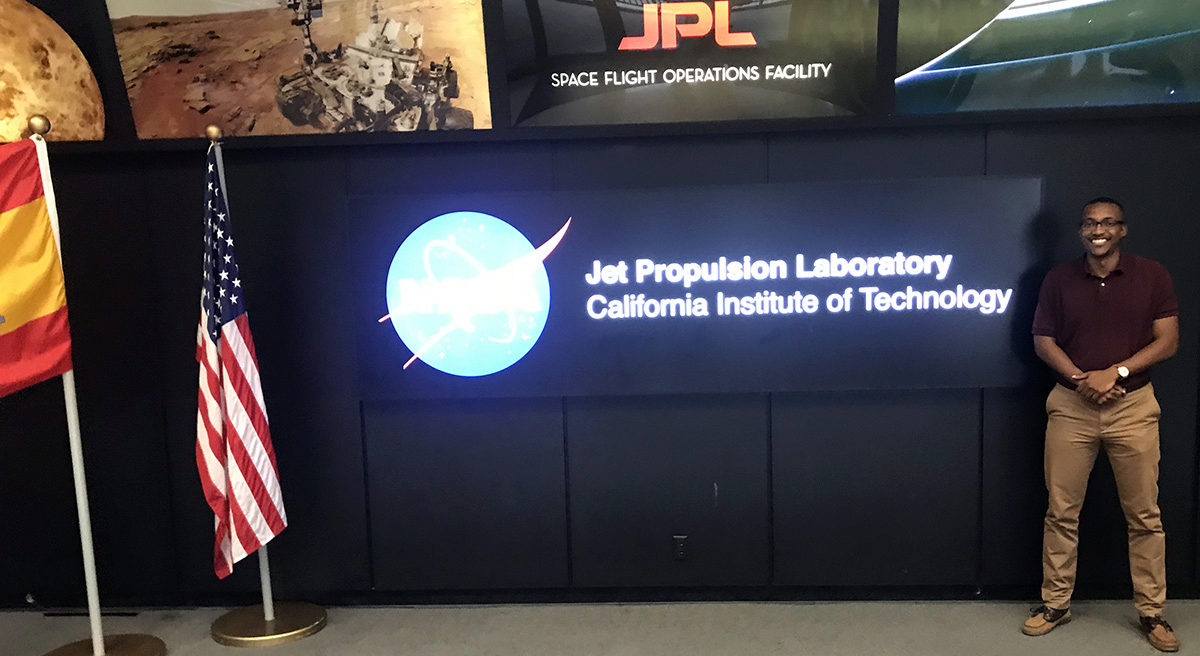
The future couldn't wait. Christopher Roper is seen here at the Jet Propulsion Lab, where he is spending his first semester as a Georgia Tech Aerospace Engineering graduate student. His co-op? Working on the Mars 2020 mission, of course. He will return to Atlanta in the spring of 2019.